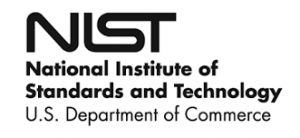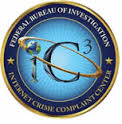 The National Institute for Standards and Technology is working on new password guidelines which will be mandated for government sector users, and strongly recommended for businesses as well. Still in draft from, the standards can be found on the document Special Publication 800-63-3: Digital Authentication Guidelines. Here are some of the recommended changes, so far. We approve, and in many cases have been ...
The National Institute for Standards and Technology is working on new password guidelines which will be mandated for government sector users, and strongly recommended for businesses as well. Still in draft from, the standards can be found on the document Special Publication 800-63-3: Digital Authentication Guidelines. Here are some of the recommended changes, so far. We approve, and in many cases have been ...
SEP

 Another out of cycle post, this one directed to anyone who is running balloting operations for the upcoming elections. I make jokes all the time about our next president being elected by the
Another out of cycle post, this one directed to anyone who is running balloting operations for the upcoming elections. I make jokes all the time about our next president being elected by the  The rare Tuesday post. I got an
The rare Tuesday post. I got an  Many small businesses are being dragged into the arena of IT risk assessment by larger client companies, suppliers, or regulators. Common scenarios include credit card (PCI) or HIPAA compliance. Since the Target breach, smaller vendors and supplier companies who have a network connection into the IT operations of a larger company are being required to undergo the same sort of vulnerability and risk assessment ...
Many small businesses are being dragged into the arena of IT risk assessment by larger client companies, suppliers, or regulators. Common scenarios include credit card (PCI) or HIPAA compliance. Since the Target breach, smaller vendors and supplier companies who have a network connection into the IT operations of a larger company are being required to undergo the same sort of vulnerability and risk assessment ... I discovered a while ago that my LG smart phone can be used fairly easily to make a surreptitious video of a meeting simply by turning on the video camera and slipping the phone into a shirt pocket. The camera lens clears the edge of the pocket nicely, and there is no indication, at least on my phone, the the camera is rolling. This is a great way to keep a record ...
I discovered a while ago that my LG smart phone can be used fairly easily to make a surreptitious video of a meeting simply by turning on the video camera and slipping the phone into a shirt pocket. The camera lens clears the edge of the pocket nicely, and there is no indication, at least on my phone, the the camera is rolling. This is a great way to keep a record ... A recent rule by the Supreme Court has given the FBI authority to hack your computer if it is inadvertently part of a criminal botnet. Recent changes to a procedural rule known as
A recent rule by the Supreme Court has given the FBI authority to hack your computer if it is inadvertently part of a criminal botnet. Recent changes to a procedural rule known as  Happy Friday the 13th. In honor of all the governmental and law enforcement agencies that want to deny the privacy and security of encrypted communications to the general public, today we will be looking at encrypted messaging apps for your smart phone.
Happy Friday the 13th. In honor of all the governmental and law enforcement agencies that want to deny the privacy and security of encrypted communications to the general public, today we will be looking at encrypted messaging apps for your smart phone. As we all know, Apple refused to assist the FBI in cracking the iPhone 5c of the San Bernardino “terrorist” killers. The FBI took Apple to court. Then the FBI dropped the case after successfully hacking the phone. Then they successfully hacked another phone in a different case in New York. Information appeared linking Israeli mobile security firm Cellebrite to the successful breach ...
As we all know, Apple refused to assist the FBI in cracking the iPhone 5c of the San Bernardino “terrorist” killers. The FBI took Apple to court. Then the FBI dropped the case after successfully hacking the phone. Then they successfully hacked another phone in a different case in New York. Information appeared linking Israeli mobile security firm Cellebrite to the successful breach ... The US House of representatives passed the Email Privacy Act. Finally the Congress passes a bill that actually protects the public from warrantless search and seizure of email records. What makes this vote special is that it was unanimous – 419-to 0! When does that ever happen? Rarely, but considering this bill would protect our representatives too, maybe not all that surprising.
The US House of representatives passed the Email Privacy Act. Finally the Congress passes a bill that actually protects the public from warrantless search and seizure of email records. What makes this vote special is that it was unanimous – 419-to 0! When does that ever happen? Rarely, but considering this bill would protect our representatives too, maybe not all that surprising.